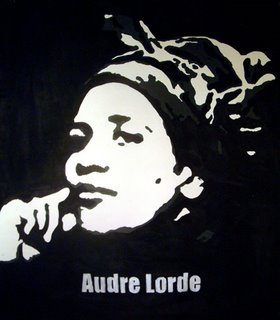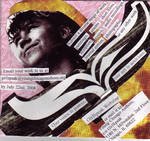Rape Victims’ Words Help Jolt Congo Into Change
BUKAVU, Congo — Honorata Kizende looked out at the audience and began with a simple, declarative sentence.
“There was no dinner,” she said.
“It was me who was dinner. Me, because they kicked me roughly to the ground, and they ripped off all my clothes, and between the two of them, they held my feet. One took my left foot, one took my right, and the same with my arms, and between the two of them they proceeded to rape me. Then all five of them raped me.”
The audience, which had been called together by local and international aid groups and included everyone from high-ranking politicians to street kids with no shoes, stared at her in disbelief.
Congo, it seems, is finally facing its horrific rape problem, which United Nations officials have called the worst sexual violence in the world. Tens of thousands of women, possibly hundreds of thousands, have been raped in the past few years in this hilly, incongruously beautiful land. Many of these rapes have been marked by a level of brutality that is shocking even by the twisted standards of a place riven by civil war and haunted by warlords and drug-crazed child soldiers.
After years of denial and shame, the silence is being broken. Because of stepped-up efforts in the past nine months by international organizations and the Congolese government, rapists are no longer able to count on a culture of impunity. Of course, countless men still get away with assaulting women. But more and more are getting caught, prosecuted and put behind bars.
European aid agencies are spending tens of millions of dollars building new courthouses and prisons across eastern Congo, in part to punish rapists. Mobile courts are holding rape trials in villages deep in the forest that have not seen a black-robed magistrate since the Belgians ruled the country decades ago.
The American Bar Association opened a legal clinic in January specifically to help rape victims bring their cases to court. So far the work has resulted in eight convictions. Here in Bukavu, one of the biggest cities in the country, a special unit of Congolese police officers has filed 103 rape cases since the beginning of this year, more than any year in recent memory.
In Bunia, a town farther north, rape prosecutions are up 600 percent compared with five years ago. Congolese investigators have even been flown to Europe to learn “CSI”-style forensic techniques. The police have arrested some of the most violent offenders, often young militiamen, most likely psychologically traumatized themselves, who have thrust sticks, rocks, knives and assault rifles inside women.
“We’re starting to see results,” said Pernille Ironside, a United Nations official in eastern Congo.
The number of those arrested is still tiny compared with that of the perpetrators on the loose, and often the worst offenders are not caught because they are marauding bandits who attack villages in the night, victimize women and then melt back into the forest.
This is all happening in a society where women tend to be beaten down anyway. Women in Congo do most of the work —at home, in the fields and in the market, where they carry enormous loads of bananas on their bent backs — and yet they are often powerless. Many women who are raped are told to keep quiet. Often, it is a shame for the entire family, and many rape victims have been kicked out of their villages and turned into beggars.
Grass-roots groups are trying to change this culture, and they have started by encouraging women who have been raped to speak out in open forums, like a courtroom full of spectators, just with no accused.
At the event in Bukavu in mid-September, Ms. Kizende’s story of being abducted by an armed group, then putting her life back together after months as a sex slave, drew tears — and cheers. It seems that the taboo against talking about rape is beginning to lift. Many women in the audience wore T-shirts that read in Kiswahili: “I refuse to be raped. What about you?”
Activists are fanning out to villages on foot and by bicycle to deliver a simple but often novel message: rape is wrong. Men’s groups are even being formed.
But these improvements are simply the first, tentative steps of progress in a very troubled country.
United Nations officials said the number of rapes had appeared to be decreasing over the past year. But the recent surge of fighting between the Congolese government and rebel groups, and all the violence and predation that goes with it, is jeopardizing those gains.
“It’s safer today than it was,” said Euphrasie Mirindi, a woman who was raped in 2006. “But it’s still not safe.”
Poverty, chaos, disease and war. These are the constants of eastern Congo. Many people believe that the rape problem will not be solved until the area tastes peace. But that might not be anytime soon.
Laurent Nkunda, a well-armed Tutsi warlord, or a savior of his people, depending on whom you ask, recently threatened to wage war across the country. Clashes between his troops, many of them child soldiers, and government forces have driven hundreds of thousands of people from their homes in the past few months. His forces, along with those from the dozens of other rebel groups hiding out in the hills, are thought to be mainly responsible for the epidemic of brutal rapes.
United Nations officials say the most sadistic rapes are committed by depraved killers who participated in Rwanda’s genocide in 1994 and then escaped into Congo. These attacks have left thousands of women with their insides destroyed. But the Congolese National Army, a ragtag undisciplined force of teenage troops who sport wrap-around shades and rusty rifles, has also been blamed. The government has been slow to punish its own, but Congolese generals recently announced they would set up new military tribunals to prosecute soldiers accused of rape.
No one — doctors, aid workers, Congolese and Western researchers — can explain exactly why Congo’s rape problem is the worst in the world. The attacks continue despite the presence of the largest United Nations peacekeeping force, with more than 17,000 troops. Impunity is thought to be a big factor, which is why there is now so much effort on bolstering Congo’s creaky and often corrupt justice system. The sheer number of armed groups spread over thousands of miles of thickly forested territory, fighting over Congo’s rich mineral spoils, also makes it incredibly difficult to protect civilians. The ceaseless instability has held the whole eastern swath of the country hostage.
In Bukavu, everywhere you look, something is broken: a railing, a window, a pickup cruising around with no fenders, a woman trudging along the road with no eyes.
The Congolese government admits it is at a loss, especially in keeping women safe.
“Every day, women are raped,” said Louis Leonce Muderhwa, the governor of South Kivu Province. “This isn’t peace.”
Activists from overseas have been pouring in. Few are more passionate than Eve Ensler, the American playwright who wrote “The Vagina Monologues,” which has been performed in more than 100 countries. She came to Congo last month to work with rape victims.
“I have spent the past 10 years of my life in the rape mines of the world,” she said. “But I have never seen anything like this.”
She calls it “femicide,” a systematic campaign to destroy women.
Ms. Ensler is helping open a center in Bukavu called the City of Joy, which will provide counseling to rape victims and teach leadership skills and self-defense. Her hope is to build an army of rape survivors who will push with an urgency — that has so far been absent — for a solution to end Congo’s ceaseless wars.
The City of Joy is rising behind Panzi Hospital, where the worst of the worst rape cases are treated. But even this refuge has come under attack. Last month, an irate mob stormed the hospital. The mob demanded that the doctors give them the body of a thief, so it could be burned. When the doctors refused, several angry young men beat up nurses and smashed windows. But it was not clear if the body was the only thing that had set them off.
“They don’t like our work,” said Denis Mukwege, a Congolese gynecologist. “Maybe what we’re doing is disturbing people.”
The stories of these rapes are clearly disturbing. But that is the point, to shake people up and grab their attention.
“The details are the scariest part,” Ms. Ensler said.
At the event last month, many people in the audience covered their mouths as they listened. Some could not bear it and burst out of the room crying.
One speaker, Claudine Mwabachizi, told how she was kidnapped by bandits in the forest, strapped to a tree and repeatedly gang-raped. The bandits did unspeakable things, she said, like disemboweling a pregnant woman right in front of her. “A lot of us keep these secrets to ourselves,” she said.
She was going public, she said, “to free my sisters.”
But Congo, if anything, is a land of contrasts. The soil here is rich, but the people are starving. The minerals are limitless, but the government is broke.
After the speaking-out event was over, Ms. Mwabachizi said she felt exhausted.
But, she added, “I feel strong.”
She was given a pink shawl with a message printed on it.
“I have survived,” it read. “I can do anything.”








